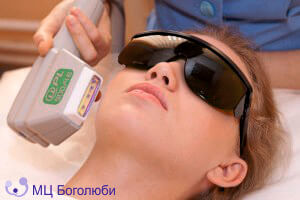Psoriasis – is an inflammatory disease of an autoimmune nature, accompanied by the appearance of red plaques, itchy and flaky. The disorder is chronic relapsing in nature.
Psoriasis develops due to the pathological condition of the immune system, which causes a very rapid division of epidermal cells. The disease is non-contagious, it can affect not only the skin, but also joints, nails. The scalp is affected in 75% of cases.
Scalp psoriasis occurs in women and men equally, regardless of age, often appears after the intervention of factors such as:
- injuries (mechanical, chemical, allergic);
- infections (beta-hemolytic streptococcus, HIV, etc.);
- sunburn;
- hormonal changes;
- alcohol abuse, smoking;
- psychophysical stress.
Signs and Symptoms
Scalp psoriasis is manifested in various forms. The sizes of individual spots vary from a few millimeters to several centimeters, and also change the location and color background.
Other common symptoms: desquamation, similar to dandruff, with the formation of gray-whitish scales on the scalp, dry skin, which has a tendency to bleeding, hair loss.
In some cases, psoriatic lesion of the scalp resembles a "cap". It can be very difficult to distinguish seborrheic dermatitis from psoriasis. Both pathologies affect the scalp and have similar symptoms. However, some differences can be observed during examination. With psoriasis, the scales rise spontaneously, exposing the bright red inflamed skin. The peeling layers are silver-white, broad and thick. With dandruff, the flakes are small, thin and yellowish.
Diagnostics
Psoriasis is usually noted on other parts of the body, so you should carefully examine your elbows, knees, fingers to make sure that there are lesions typical of the disease. You can contact the dermatologist of the «Bogoliuby », чMC in order to conduct a correct diagnosis and get timely help. Dermatoscopy shows typical vascular changes that can differentiate psoriasis from seborrheic dermatitis. Sometimes a biopsy of a small tissue sample is necessary to rule out other skin diseases.
Scalp psoriasis can spread to the forehead, back of the neck and around the ears. Permanent lesions lead to thinning of the hair and even their loss. Scalp psoriasis in a negative way affects the quality of life of the patient and his psychological state.
How to treat psoriasis
There are many therapeutic strategies for treating scalp psoriasis, however, they are not critical and are designed to keep the disease under control. Depending on the severity of psoriasis, you can resort to the use of local funds (creams, lotions) directly on the scalp, phototherapy and / or systemic medications.
It should be noted that scalp plaques are difficult to treat, since hair interferes with the use of local products and protects the skin from UV radiation. (Although phototherapy is especially effective in the chronic course of the disease.) A noticeable clinical effect is observed with the use of sulfur thermal waters.

















